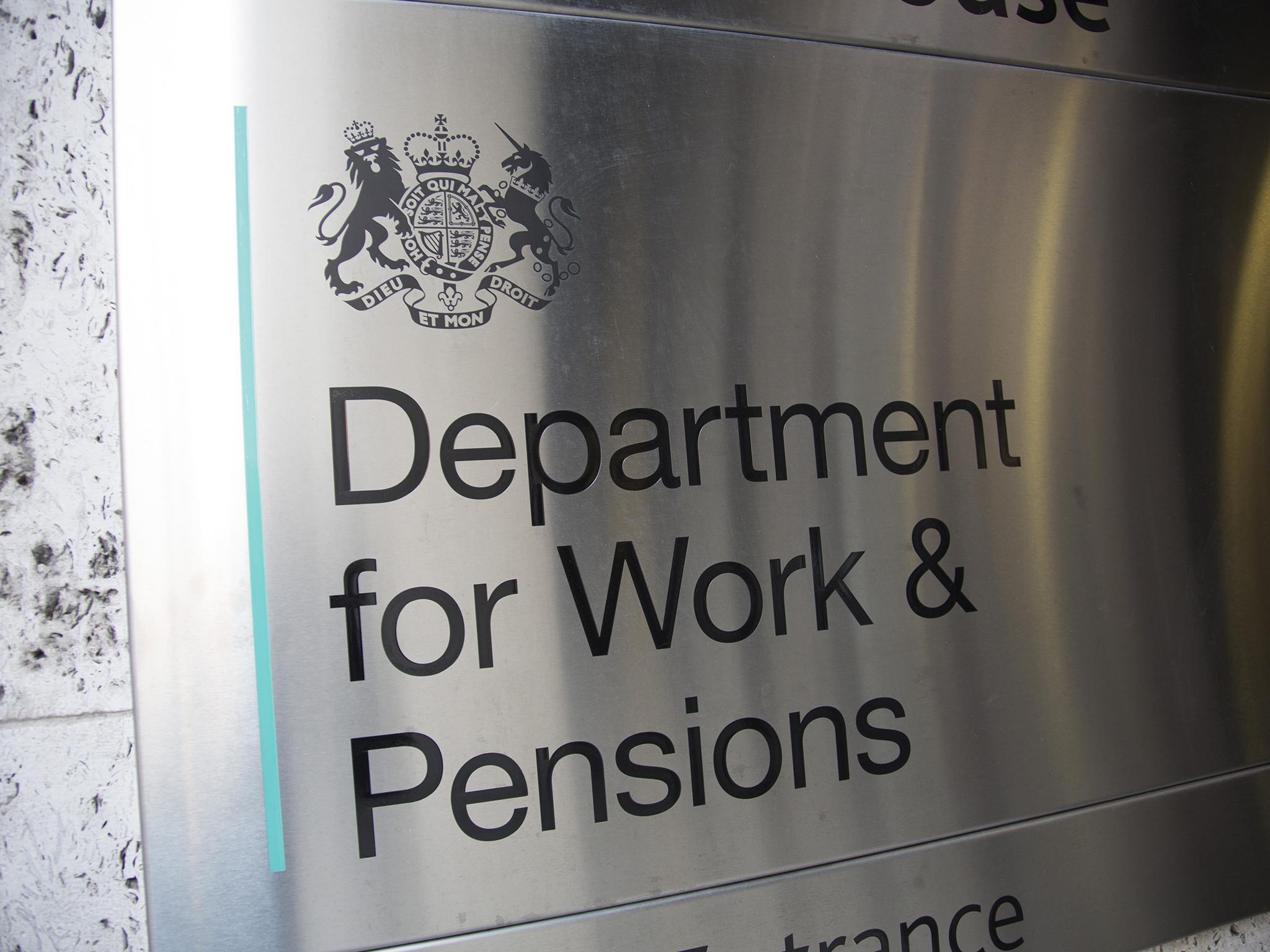Ministers refuse to assess impact of benefit sanctions on mental health despite warnings of links to suicide
‘The government doesn’t want to carry out a review because it will only prove there is an impact’

Your support helps us to tell the story
From reproductive rights to climate change to Big Tech, The Independent is on the ground when the story is developing. Whether it's investigating the financials of Elon Musk's pro-Trump PAC or producing our latest documentary, 'The A Word', which shines a light on the American women fighting for reproductive rights, we know how important it is to parse out the facts from the messaging.
At such a critical moment in US history, we need reporters on the ground. Your donation allows us to keep sending journalists to speak to both sides of the story.
The Independent is trusted by Americans across the entire political spectrum. And unlike many other quality news outlets, we choose not to lock Americans out of our reporting and analysis with paywalls. We believe quality journalism should be available to everyone, paid for by those who can afford it.
Your support makes all the difference.The government has refused to assess the impact benefit sanctions have on people’s mental health despite repeated warnings they can cause long-lasting damage to the wellbeing of claimants and their families.
Charities, doctors and academics have warned repeatedly that the government’s policy of suspending welfare benefits to people if they don’t meet certain conditions – known as applying sanctions – can lead to mental health problems, including suicidal tendencies.
But in response to a parliamentary question this month asking the Department for Work and Pensions (DWP) what assessment had been made of the mental health impact of sanctions – which form a key element of its flagship universal credit system – employment minister Mims Davies said “no assessment has been made” of any potential link.
She said when considering whether a sanction was appropriate, the department took “all the claimant’s individual circumstances” into account before deciding whether it was warranted, and made no mention of any future plans to review the impact of the policy.
Campaigners responded with anger, warning a failure to review the impact of sanctions would lead to long-term mental health problems among benefit claimants and their children.
Manzoor Ali, director of Barakah Food Aid, which offers donated goods to people struggling to get by, said he was seeing people being driven into mental health problems as a result of sanctions, including young children.
“People are committing suicide, or on the verge of suicide. Once this sanction comes in, they’re left with no money. It becomes this rollercoaster of a journey. It creates more problems for them,” he said.
“Their benefits are completely cancelled so they’ve got literally nothing coming in. It can take four to six weeks. Sometimes they’ll get an emergency loan, but that is then immediately taken out of their benefits once it’s reinstated. It’s a vicious cycle.
“Some of the people tell me they’re on the verge of calling it a day they don’t know how much longer they can take it. It’s unbelievable.
“The number of children I’m seeing who are just silent. Many are going to school without breakfast. This issue is going to have a future impact – the children will grow up with mental health issues.”
Mr Ali said he believed the government chose not to commission a review because it would “prove there is an impact” and prove the Conservative government was “at fault”.
He added: “They don’t seem to care. If they did, we wouldn’t have this system. It would be looked into. Services would be invested in.”
It comes after research commissioned by Salford City Council in 2016 found that sanctions were “devastating” for claimants and could lead to suicide, while a year later Britain’s leading psychologists urged ministers to immediately stop the practice or risk soaring rates of mental health problems.
More recently, a report by the Money and Mental Health Policy Institute in March 2019 found that universal credit was “ruining lives” with burdensome red tape for people with mental health issues, and called for an end to sanctions for those in crisis who can’t attend job interviews.
The DWP did pledge in 2013 to review the policy of suspending benefits “on an ongoing basis”, but a report by the Work and Pensions Committee in 2018 found that – five years later – no such evaluation had been carried out and the government subsequently had “no idea how many people were suffering” as a result of the policy.
The committee branded the system “arbitrarily punitive”, while a government report last year found there was “no evidence” that sanctions were encouraging people into work or increasing their earnings.
A DWP spokesperson said sanctions were only used when someone “fails to fulfil their agreed commitments without a good reason”, adding: “We tailor support to people’s personal situations and we take mental health issues into account when considering if a sanction is appropriate.
Join our commenting forum
Join thought-provoking conversations, follow other Independent readers and see their replies
Comments